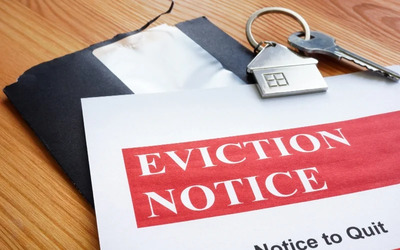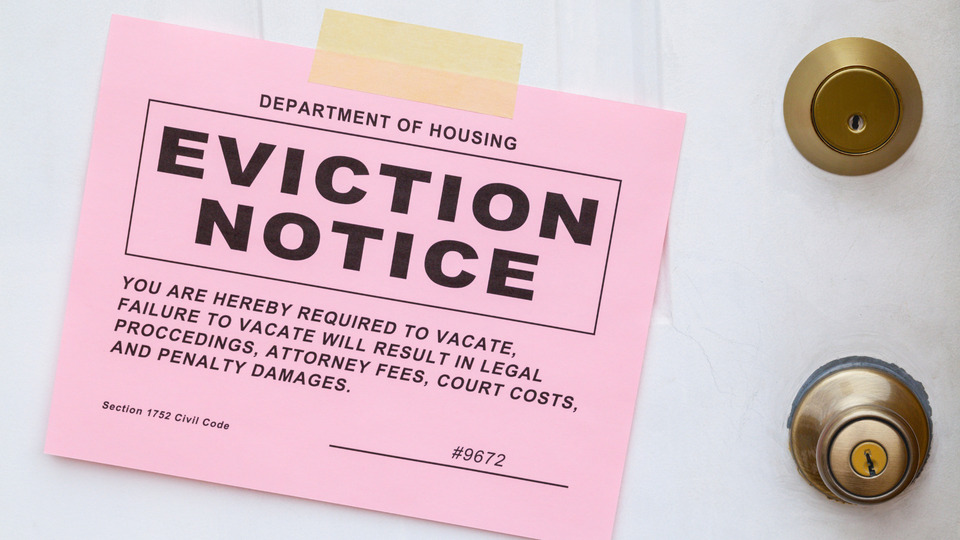Navigating the eviction process in Colorado has become more complex with the 2025 legal updates now in effect. From new rules on just-cause evictions to mandatory mediation requirements, landlords must follow precise steps to stay compliant.
This detailed guide by LeaseRunner walks you through every stage of the eviction process — from serving notices to regaining possession — to help you avoid costly mistakes.
2025 Colorado Eviction Law Updates
Recent changes to Colorado’s eviction laws in 2025 have added new protections for tenants and created additional legal steps landlords must follow. These updates affect how the eviction process in Colorado unfolds—from the initial notice to final court judgment.

Voucher Holder Protections
A key development impacting the eviction process in Colorado in 2025 relates to tenant protections for individuals utilizing housing subsidies, such as Section 8 vouchers.
House Bill 25-1240, effective May 29, 2024 (and thus firmly in place for 2025), now requires all Colorado landlords to accept housing subsidies. This means refusing an applicant solely based on their use of a housing voucher is considered a fair housing violation, irrespective of the landlord's portfolio size.
Furthermore, for tenants receiving rental assistance, landlords must provide a 30-Day Eviction Notice for nonpayment of rent, replacing the standard 10-day notice. Late fees for voucher holders are also capped at $20. These provisions aim to ensure housing accessibility and stability for vulnerable populations.
Mandatory Mediation & Delay
Colorado's commitment to avoiding unnecessary evictions is further underscored by requirements for mandatory mediation. Specifically, for tenants receiving certain financial assistance, landlords may be required to participate in mediation before filing an eviction lawsuit. This includes Supplemental Security Income (SSI), Social Security Disability Insurance (SSDI), or cash assistance through the Colorado Works Program (TANF).
If mandatory mediation occurs, there is generally a 30-day delay after an eviction judgment is entered before the sheriff can physically remove the tenant. This crucial step, outlined in HB 23-1120 (effective June 2023), provides an opportunity for a neutral third party to facilitate a voluntary settlement between the landlord and tenant, potentially averting court proceedings.
Just Cause Eviction
A significant shift in Colorado eviction laws is the implementation of "Just Cause" eviction requirements (House Bill 24-1098, signed April 19, 2024). This law stipulates that landlords cannot evict a tenant or refuse to renew a lease agreement without a legally defined reason, commonly referred to as "just cause." Acceptable "causes" for eviction typically include:
- Nonpayment of Rent: The tenant fails to make the rent payment after proper notice.
- Lease Violations: The tenant commits a material or substantial violation of the lease agreement and fails to cure it (if curable).
- Criminal activity or other nuisance issues.
- The landlord or a family member intends to occupy the unit.
- The property is being demolished or substantially renovated.
- The property is being withdrawn from the rental market for sale.
Legal Reasons to Evict a Tenant in Colorado
To lawfully begin the eviction process in Colorado, a landlord must have a legally valid reason recognized under state law. Evicting a tenant without cause can result in legal delays, dismissal by the court, or even liability for violating tenant rights.
Nonpayment of Rent
When a tenant fails to pay their rent by the due date, it constitutes a breach of the lease agreement. Colorado law typically requires a specific notice period before a landlord can file an unlawful detainer lawsuit. For most residential tenancies, a 10-day "Notice to Pay Rent or Quit" is required.
This notice gives the tenant 10 days to either pay the overdue rent in full or vacate the premises. If the tenant fails to comply within this period, the landlord can then proceed with filing a complaint with the court. It's crucial to note that for tenants receiving certain housing subsidies, this notice period extends to 30 days.
Lease Violations
These violations can range from unauthorized pets or occupants to property damage, excessive noise, or violating specific rules outlined in the lease.
Landlords must typically provide the tenant with a “Notice to Cure or Quit." This notice informs and gives the tenant a set period (often 10 days) to "cure" or fix the violation. If the tenant remedies the issue within the specified time, the eviction process cannot proceed for that particular violation.
However, if the violation is not cured, or if it's a repeat violation of the same term, the landlord can move forward with legal action. For severe or "substantial" violations that cannot be cured, a shorter notice period (e.g., 3 days) may apply, leading directly to the filing of an unlawful detainer action.
Criminal Activity
Engaging in illegal or criminal activity includes, but is not limited to, drug-related offenses, violent crimes, or any activity that endangers the safety of other tenants, the landlord, or the property itself. In such severe cases, the eviction process in Colorado can be expedited. Landlords are generally permitted to issue a 3-day "Notice to Quit", which does not provide the tenant an opportunity to cure the violation.
If the tenant does not vacate the premises within these three days, the landlord can immediately file an unlawful detainer lawsuit with the court. Due to the gravity of these situations, it's vital for landlords to have clear evidence and to follow all legal procedures precisely to ensure a successful judgment.
End of Lease or No-Lease Tenants (“No-Fault" Evictions)
As of 2025, the ability to conduct “no-fault" evictions is significantly restricted and must fall under specific reasons. For these “no-fault" reasons, Colorado law typically requires a longer notice period, often 90 days, depending on the reason and the length of the tenancy.
These notices must clearly state the just cause for termination. Landlords must also be aware of potential relocation assistance requirements for certain tenants (e.g., low-income, elderly, disabled, or minor residents) when pursuing these types of evictions.
Serving a Valid Eviction Notice in Colorado
Serving a legally valid eviction notice is one of the most important steps in the eviction process in Colorado. Landlords must follow specific rules to ensure the notice is enforceable and complies with both state and local tenant protections.

Select the right notice type
Choosing the incorrect notice type is a common mistake that can invalidate the entire eviction process.
- Demand for Compliance or Right to Possession (10-Day Notice): This is the most common notice for curable lease violations. It gives the tenant 10 days to correct the violation or move out. (Note: For tenants with housing subsidies, a 30-day notice for nonpayment is often required. For certain "exempt residential agreements," a 5-day notice may apply).
- Notice to Quit for Substantial Violation (3-Day Notice): Used for serious, incurable lease violations like criminal activity or actions that endanger the safety of others. This notice does not offer the tenant a chance to fix the issue; they must vacate within three days.
- Notice of No-Fault Eviction (e.g., 90-Day Notice): If a landlord is ending a tenancy for specific "no-fault" reasons, a longer notice period (often 90 days) is typically required. These notices must clearly state the specific "just cause" reason.
Include required details
Beyond selecting the correct type, the eviction notice must contain specific information to be legally valid. Essential elements typically include:
- Tenant's Full Name(s): All adult tenants listed on the lease.
- Property Address: The complete and accurate address of the rental property.
- Reason for Eviction: A clear, concise, and specific description of the lease violation or the "just cause" for termination.
- Cure Period/Deadline: The precise number of days the tenant has to comply or vacate, and the exact date by which they must do so.
- Statement of Intent: A clear statement that if the tenant does not comply or vacate, the landlord will initiate an unlawful detainer lawsuit to seek a judgment for possession.
- Landlord's Signature: The signature of the landlord or their authorized agent.
Serve notice properly
Failure to serve the eviction notice correctly can be grounds for a court to dismiss the eviction process. Acceptable methods of service generally include:
- Personal Service: Delivering a copy of the notice directly to the tenant.
- Substituted Service: Delivering a copy to a person over the age of 18 who is residing at the rental property and is a member of the tenant's family.
- Posting and Mailing: If personal or substituted service is not possible after reasonable attempts, the notice can be posted in a conspicuous place on the rental property. And a copy must also be sent to the tenant via first-class mail within 24 hours of posting.
Always keep proof of service, such as a signed affidavit from the person who delivered the notice, photographs of a posted notice, or certified mail receipts. This documentation will be vital if the case proceeds to court.
Never use self-help tactics
Under no circumstances should a landlord attempt to evict a tenant through “self-help" measures. These illegal actions violate tenant rights and can lead to severe penalties, including fines and civil lawsuits against the landlord. The only legal way to remove a tenant is through the formal eviction process in Colorado, culminating in a Writ of Restitution issued by the court and executed by the sheriff.
Step-by-Step Eviction Process in Colorado
Once a landlord has identified a legal reason for eviction and ensured compliance with all preliminary requirements, the formal eviction process in Colorado begins.

Step 1: Serve the Eviction Notice
This notice, whether a 3-day, 10-day, or 90-day notice, formally informs the tenant of the violation or the “just cause" for termination. It provides a specific timeframe for the tenant to either remedy the issue or vacate the rental property. If the tenant complies with the notice within the specified period, the eviction process stops, and the tenancy continues. If they do not, the landlord can proceed to the next step.
Step 2: File a Complaint with the Court
If the tenant fails to comply with the eviction notice within the given timeframe, the landlord can then initiate a formal lawsuit in the appropriate Colorado court. This involves filing a document known as a "Complaint in Forcible Entry and Detainer" (FED), which must accurately state:
- The names of the landlord (plaintiff) and tenant (defendant).
- The address of the rental property.
- The legal reason for the eviction.
- A statement that the proper eviction notice was served and the tenant failed to comply.
- Any monetary damages sought, such as unpaid rent.
Along with the Complaint, the landlord will also prepare a "Summons," which is the official document notifying the tenant that a lawsuit has been filed against them and instructing them to appear in court. Applicable filing fees must be paid at this time.
Step 3: Serve Court Documents to the Tenant
Once the Complaint and Summons are filed with the court, these official court documents must be formally served to the tenant. These documents generally must be served by a process server or the sheriff's office, not the landlord directly.
Methods of service for court documents typically include:
- Personal Service: The Summons and Complaint are delivered directly to the tenant. This is the preferred method as it provides the strongest proof of service.
- Substituted Service: If personal service is not possible after diligent attempts, the documents may be left with a person over 18 at the rental property who resides there, followed by mailing a copy.
- Posting and Mailing: As a last resort, if other methods fail, the documents can be posted conspicuously on the rental property and mailed via certified mail.
Proof of service must be filed with the court to demonstrate that the tenant was properly notified.
Step 4: Attend the Court Hearing
After the tenant has been served, a court hearing date will be set, usually within 7 to 14 days. Both the landlord and the tenant are expected to attend.
- Tenant's Response: The tenant has the right to file an "Answer" with the court to dispute the eviction claims. They may also present defenses, such as claims of landlord retaliation, issues with the rental property's habitability, or improper notice.
- Mediation: In some cases, particularly if the tenant receives certain government assistance, mandatory mediation may be required before the hearing to attempt a settlement outside of court.
- The Hearing: During the hearing, both parties will present their case, offer evidence, and may call witnesses. The landlord must be prepared to prove that the tenant violated the lease or that a "just cause" for eviction exists, and that all legal procedures were followed.
- Judgment: If the landlord prevails, the court will issue a judgment for possession in their favor. If the tenant wins, they retain possession of the rental property.
Step 5: Get a Writ of Restitution
If the landlord obtains a judgment for possession, the tenant is typically given a short period (often 48 hours, though it can vary based on court order) to vacate the rental property voluntarily.
If the tenant does not move out within this timeframe, the landlord must obtain a "Writ of Restitution" from the court. This document is a final court order that directs the county sheriff to physically remove the tenant and their belongings from the rental property.
Step 6: Sheriff Regains Possession
With the Writ of Restitution in hand, the landlord delivers it to the county sheriff's office. The sheriff will then schedule a time to execute the writ.
On the scheduled date, the sheriff will go to the rental property and supervise the removal of the tenant and their belongings. The landlord must be present (or have a representative) to take immediate possession of the property once the sheriff has completed their duty.
Colorado Eviction Timeline and Costs
Understanding the timeline and potential costs involved is essential for any landlord navigating the eviction process in Colorado. Delays can occur at multiple stages, especially when court procedures or tenant protections come into play.
Key Documents to Prepare for Eviction in Colorado
Whether you're evicting a tenant for any reason, preparing the right paperwork helps protect landlord rights and ensures you’re following legal procedures. The court will rely heavily on these records to issue a fair judgment.

Lease agreement
Your signed lease agreement serves as the foundation of your eviction case. It outlines the tenant’s responsibilities, payment terms, and rules for the rental property. Courts will review the lease to confirm that a violation has occurred or that the tenancy has legally ended.
Payment history
Accurate rent payment records help demonstrate a pattern of nonpayment or late payments. Provide clear documentation that includes due dates, missed payments, and any late fees assessed. This is especially important when the reason for eviction is nonpayment of rent.
All notices (with proof of delivery)
Accurate rent payment records help demonstrate a pattern of nonpayment or late payments. Provide clear documentation that includes due dates, missed payments, and any late fees assessed. This is especially important when the reason for eviction is nonpayment of rent.
Photos/videos of violations
If the eviction is based on damage to the property, unauthorized occupants, or other lease violations which go beyond normal wear and tear, visual evidence can help support your claims. Photos or video recordings provide an objective view of the issue and can be particularly effective in court when the tenant disputes the allegations.
Written communications or complaints
Save any emails, text messages, or written complaints that show tenant behavior violating the lease or disturbing neighbors. This includes warning letters or messages where you asked the tenant to fix an issue. Documentation of these interactions can strengthen your case and show that the landlord made reasonable efforts before resorting to legal action.
Landlord Tips to Avoid Eviction Mistakes
To ensure a smoother and legally compliant eviction, landlords should prioritize precision, clear communication, and adherence to all legal procedures.

1. Understand Colorado's Eviction Laws & Stay Updated
Regularly review the Colorado Revised Statutes concerning Forcible Entry and Detainer and stay informed about new legislation. Ignorance of the law is not a defense in court.
2. Prioritize Thorough Tenant Screening
Conduct comprehensive background checks, credit checks, verify employment, and contact previous landlords. A robust screening process can help identify high-risk tenants before a lease is signed, saving immense time and resources down the line.
3. Maintain Meticulous Records of Everything
As highlighted in the previous section, documentation is paramount. Keep detailed records of all:
- Rent payment history.
- Signed lease agreements and any amendments.
- All communication with the tenant, both written and notes from phone calls.
- Photographs or videos of property condition, move-in/move-out inspections, and any damages or lease violations.
- Copies of all notices served with proof of delivery.
4. Always Issue Proper and Timely Notices
This is where many landlords make critical errors.
- Use the correct notice type: Understand when to use a 3-day, 10-day, 30-day, or 90-day notice based on the specific reason for eviction and the type of tenancy.
- Include all required details: Ensure the notice is complete, accurate, and includes all legally mandated information.
- Serve notices correctly: Follow the strict rules for service and always retain proof of service.
5. Never Resort to Self-Help Eviction Tactics
The actions violate tenant rights and can result in severe financial penalties for the landlord, including civil lawsuits. The only legal way to remove a tenant is through the judicial eviction process in Colorado, culminating in a sheriff-enforced Writ of Restitution.
6. Seek Legal Counsel When in Doubt
If you are unsure about any step, consult with an attorney specializing in landlord-tenant law. While it's an upfront cost, legal advice can save you significantly more in potential delays, lost rent, and legal fees from a botched eviction.
Conclusion
Navigating the eviction process in Colorado requires careful attention to legal procedures, documentation, and communication. With new 2025 laws in place, landlords must take extra care to stay compliant. Serving the correct notices, following court procedures, and avoiding self-help tactics are all essential steps. By understanding your responsibilities and rights, you can resolve rental disputes lawfully while minimizing delays and costly mistakes.
Stay informed about updated laws and streamline your rental property management via LeaseRunner!
FAQs
Q1. How long does the eviction process in Colorado typically take?
On average, it can take anywhere from 3 weeks to 3 months, but contested cases or sheriff backlogs can extend it further. The initial notice period alone can range from 3 to 90 days.
Q2. Can a landlord evict a tenant without a reason in Colorado?
As of 2025, Colorado's "Just Cause" eviction laws (HB 24-1098) generally require landlords to have a specific, legally recognized reason to evict a tenant or refuse to renew a lease. Landlords can no longer simply evict a tenant without cause after a certain period of tenancy.
Q3. Can a landlord change the locks or shut off utilities to evict a tenant?
Absolutely not. Using "self-help" eviction tactics like changing locks, shutting off utilities, or removing a tenant's belongings is illegal in Colorado. Such actions violate tenant rights and can result in severe penalties for the landlord, including fines and lawsuits.
Q4. Is mediation required before filing for eviction in 2025?
In some Colorado counties, yes. Mandatory mediation laws may apply, especially in cases involving nonpayment of rent or where local ordinances require it.
Q5. Can I speed up the eviction process?
You can reduce delays by following every legal step correctly: using the right notice, serving documents properly, preparing full documentation, and appearing in court with all necessary records. However, landlords cannot legally skip any steps to speed things up.



